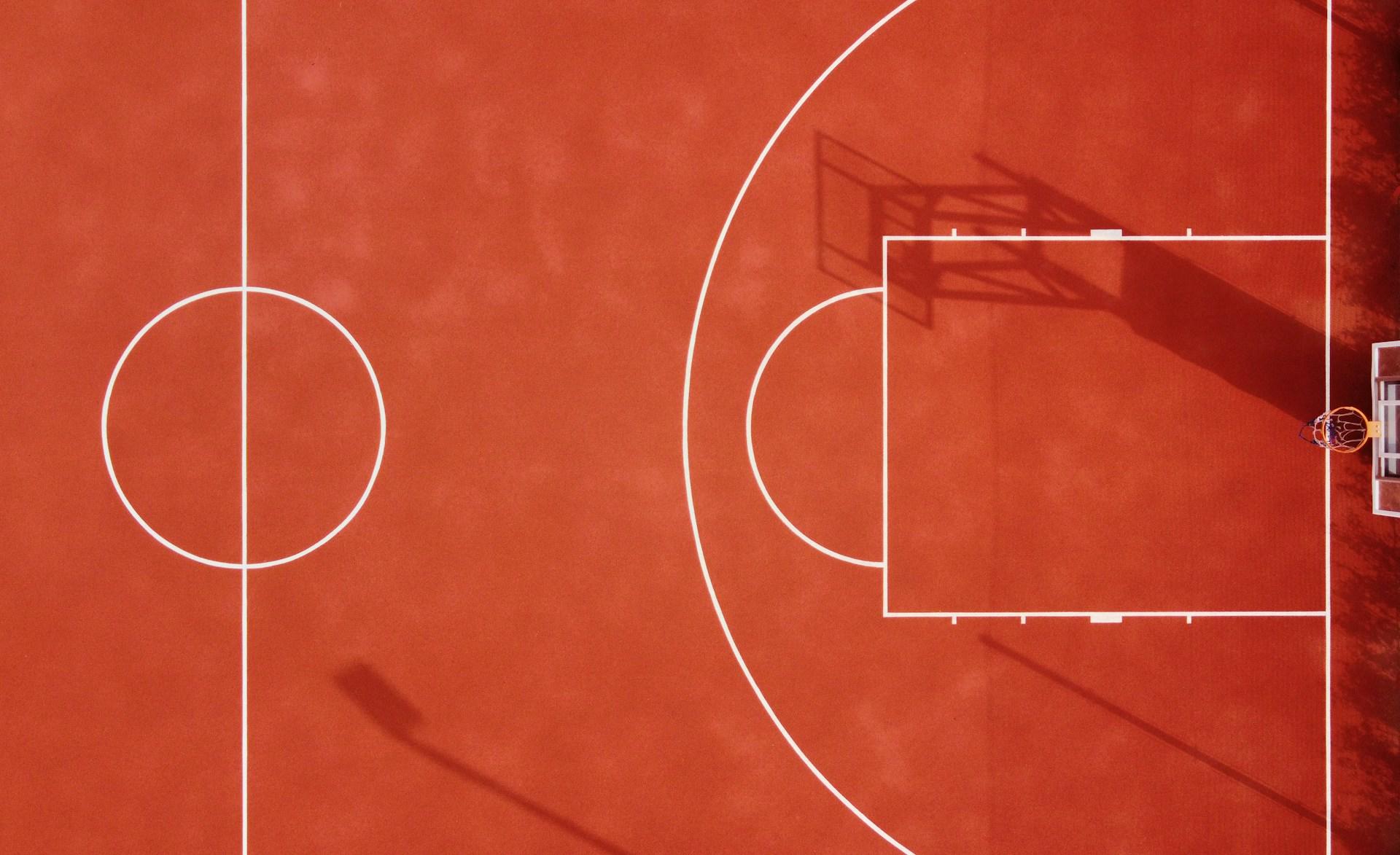Some people want it to happen, some wish it would happen and others make it happen.
Michael Jordan
Basketball is a worldwide sport characterized by the fluidity, versatility and the active roles of its players. One of the most important positions on a basketball team is the small forward. Often seen as the most versatile player on the court, the small forward possess a specific set of skills, attributes and responsibilities. This article explores what defines a small forward, their responsibilities, the characteristics that make them successful and highlights some of the best small forwards in basketball history! Exciting, isn't it?
The small forward position is often referred to as the three position!

What Is a Small Forward in Basketball?
One of the five key positions in basketball is the small forward. The small forward is often referred to as the "three" position. Positioned typically between the shooting guard and the power forward, the small forward is known for their adaptability and ability to play both on the perimeter and inside the key. They are often considered the most versatile players on the team due to their ability to perform a wide range of tasks, from scoring and defending to rebounding and facilitating the offense.
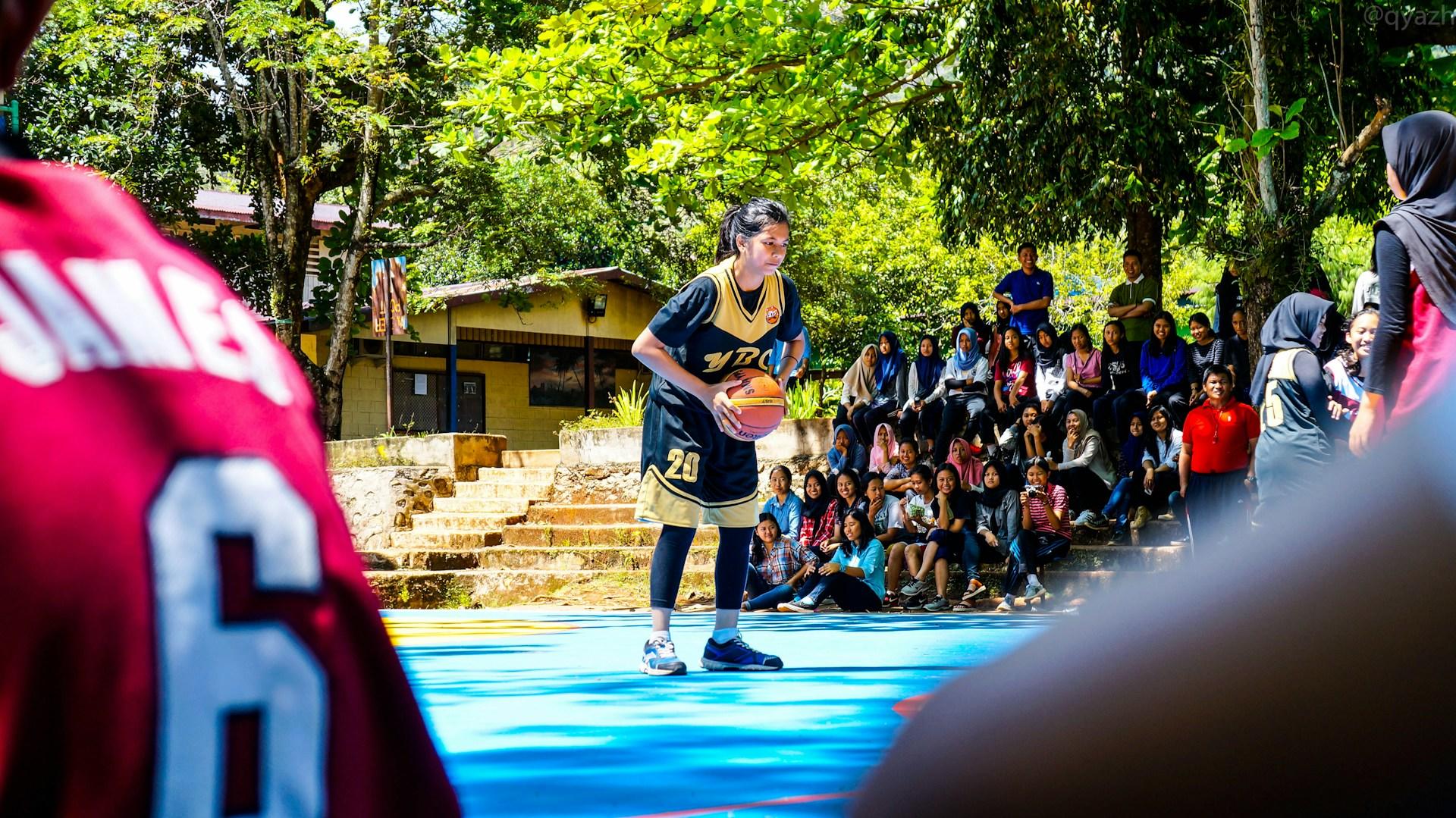
In basketball, penalty shots or free throws are typically taken by the player who was fouled while attempting a shot or who was fouled after their team entered the bonus or penalty situation.
Responsibilities of a Small Forward Position: What Does a Small Forward Do?
The responsibilities of a small forward can vary greatly depending on the team's strategy and the individual player's skill set. However, there are several core duties that most small forwards are expected to fulfill.
Sometimes a player's greatest challenge is coming to grips with his role on the team.
Scottie Pippen
1. Scoring: Small forwards are often relied upon to contribute significantly to the team's scoring. They must be able to shoot from long range, finish at the rim and create their own shots off the dribble. Their scoring versatility makes them a constant threat to opposing defenses.
2. Defense: Defensively, small forwards are expected to guard multiple positions. Their role includes defending against opposing small forwards, but they may also be tasked with stopping shooting guards or power forwards, depending on matchups. They need to be quick enough to stay with perimeter players and strong enough to contest shots in the key.
3. Rebounding: Small forwards are often crucial in the rebounding battle. They need to crash the boards on both ends of the court, contributing to defensive stops and providing second-chance opportunities on offense.
4. Playmaking: While not typically the primary ball-handler, small forwards are expected to have good court vision and passing skills. They need to facilitate the offense, especially in transition and create scoring opportunities for their teammates.
5. Versatility: One of the key attributes of a small forward is their ability to adapt to different situations on the court. They must be able to switch defensively, play multiple offensive roles and adjust their style of play based on the needs of the team and the flow of the game.
Here is a TikTok video of the most important roles of a small forward!
Do you want to learn more about the point guard position too?

Characteristics of a Successful Small Forward
To excel as a small forward, a player needs to possess a combination of physical attributes, skills and mental fortitude. Some of the most important characteristics include:
1. Athleticism: A successful small forward must be athletic, with a good mix of speed, agility and strength. This allows them to excel in both offensive and defensive roles, from driving to the basket to guarding various positions.
2. Shooting Ability: Mastery in shooting, especially from three-point range, is crucial. Small forwards need to stretch the floor and keep defenses honest, making them a threat from beyond the arc.
3. Ball Handling: Good ball-handling skills are essential for creating shots and driving to the basket. A small forward must be able to handle the ball under pressure and navigate through defenses.
This player is smaller and more agile than the power forward and center, yet taller and more versatile than the guards, combining skills of both to play a pivotal, all-around role on the court.
4. Basketball IQ: Understanding the game, reading defenses and making smart decisions are vital. A high basketball IQ helps small forwards to position themselves effectively, make the right passes and take advantage of scoring opportunities.
5. Defensive Skills: Being a versatile defender is also key. This includes having quick lateral movement, the ability to contest shot and the strength to hold their ground against bigger players.
6. Mental Toughness: Small forwards often face some of the toughest matchups and high-pressure situations. Mental toughness and the ability to stay focused and perform under pressure are essential traits.
Are you also looking to be a shooting guard?
The Best Small Forwards in History
The best small forwards in basketball history are known for their all-around skills and versatility. NBA stars like LeBron James, Larry Bird and Kevin Durant have amazed fans with their scoring, defense and plays. In the WNBA, players like Sheryl Swoopes, Maya Moore and Tamika Catchings have shown incredible talent and leadership. These players have set high standards and left a lasting impact on the game.
Male Small Forwards
Let’s take a look at some of the best male small forwards in NBA history! Between LeBron James, Larry Bird, Scottie Pippen, Julius Erving and Kevin Durant, who is your favorite?
LeBron James
Known as one of the greatest basketball players of all time, LeBron James embodies the modern small forward. His combination of size, athleticism and skill has allowed him to dominate the game in multiple facets, from scoring and playmaking to defending and rebounding.
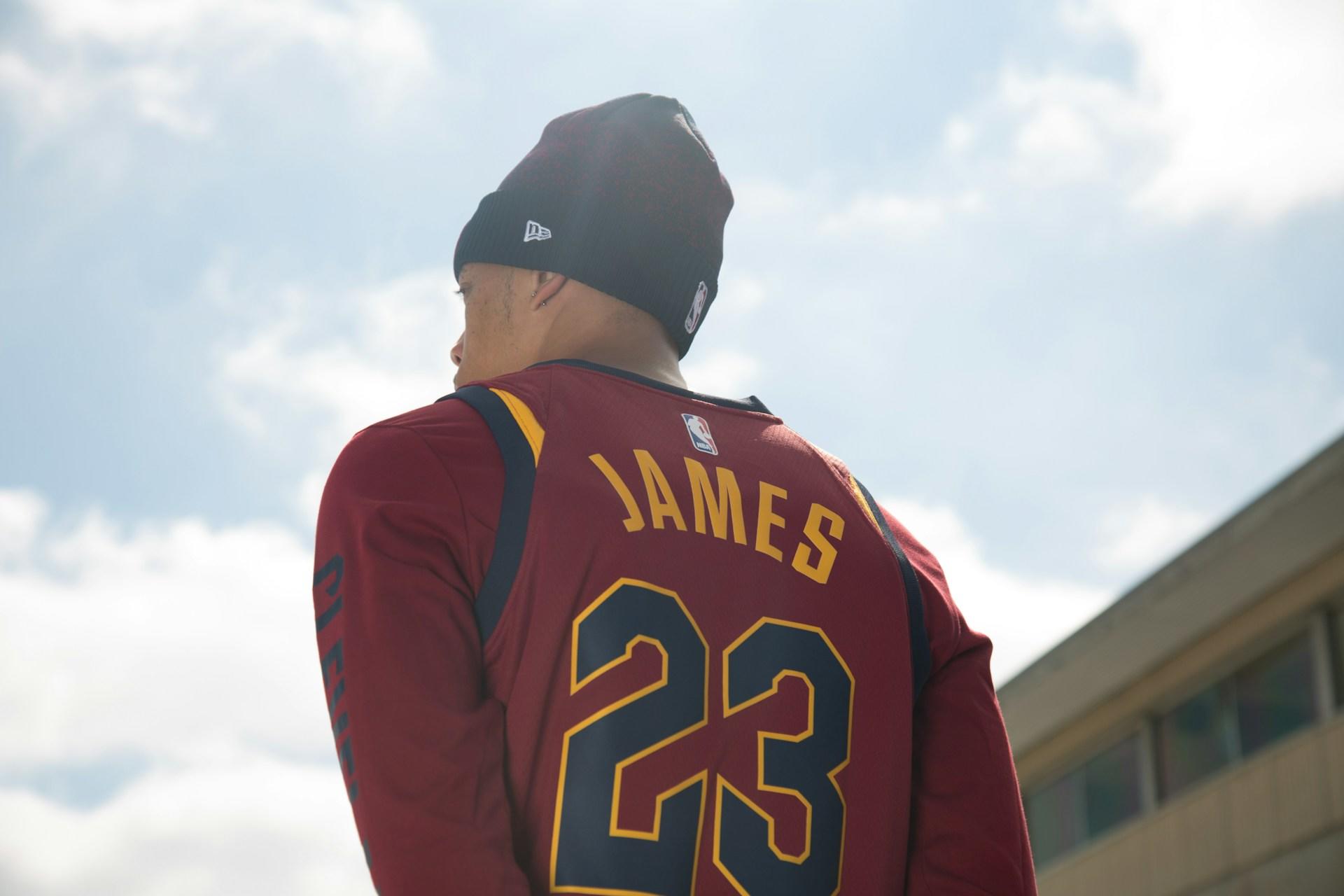
Larry Bird
Known for his incredible shooting, passing and basketball IQ, Larry Bird was an influential player for the Boston Celtics in the 1980s.
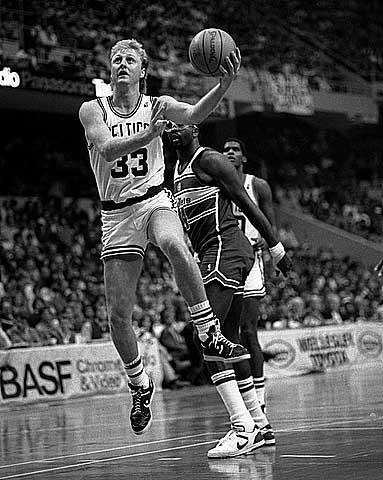
Bird's competitive spirit and versatility made him one of the most feared small forwards in NBA history. He was a three-time NBA champion, three-time MVP and 12-time All-Star. Beyond the stats, Bird’s fierce rivalries, clutch performances and leadership helped define the golden era of Celtics basketball and cemented his legacy as one of the greatest players to ever step on the court. His battles against Magic Johnson elevated the NBA’s popularity worldwide and his unmatched work ethic, fiery confidence and relentless toughness continue to inspire players and fans across generations.
Scottie Pippen
Often overshadowed by his teammate Michael Jordan, Scottie Pippen was instrumental in the Chicago Bulls' six championships in the 1990s.
Pippen's defensive skills, playmaking ability and constant scoring made him one of the most complete small forwards ever. He was a seven-time NBA All-Star and a member of the league’s All-Defensive First Team eight times, earning a reputation as one of the best perimeter defenders in history.
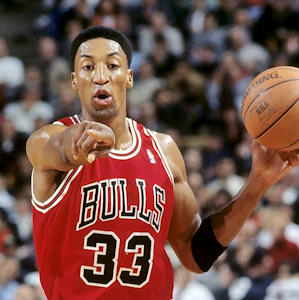
Pippen’s versatility allowed him to guard multiple positions, initiate the offense and provide steady scoring when needed. His unselfish style of play and leadership were key to Chicago’s dynasty, cementing his legacy as a cornerstone of championship basketball.
Kevin Durant
Kevin Durant's scoring ability is unparalleled among small forwards. With his height and shooting touch, Durant has redefined the position, making him a matchup nightmare for any defender. Here are his most dominant moments!
Julius Erving (Dr. J)
Dr. J was a pioneer of the modern athletic small forward. Known for his incredible leaping ability and graceful play, Erving was a dominant scorer and a highlight reel main character! Here's a teaser!
Female Small Forwards
Female small forwards are often the most versatile players on the court, blending scoring, defense, and playmaking. They’re expected to guard multiple positions, attack the basket, and stretch the floor with perimeter shooting. Many of the game’s greatest all-around athletes thrive at this position, showcasing both strength and finesse. Let’s take a look at some of the best female small forwards in WNBA history!
Maya Moore
Maya Moore is considered one of the greatest female basketball players ever. Her scoring ability, defensive skills and leadership helped her lead the Minnesota Lynx to multiple WNBA championships.
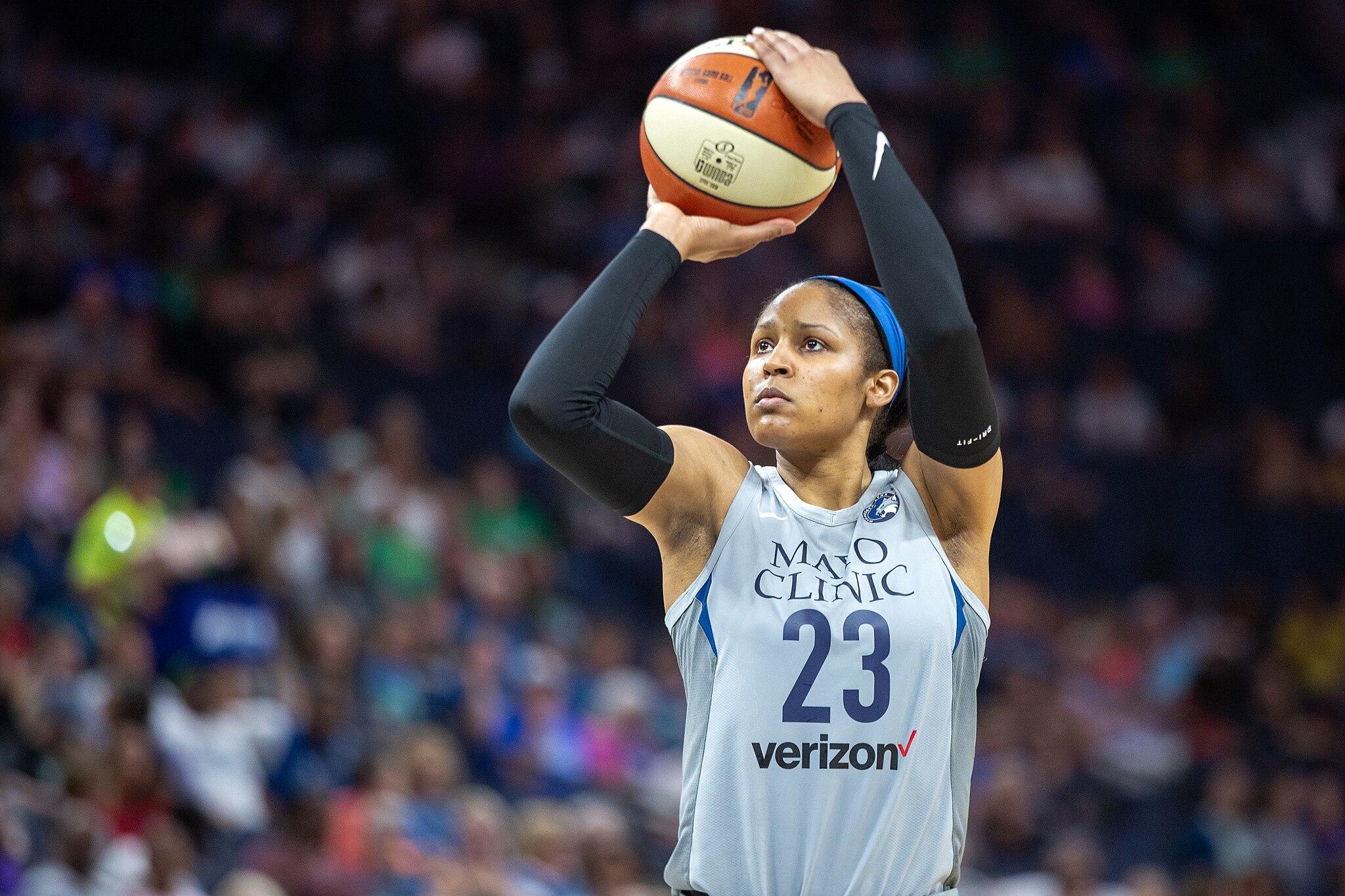
A four-time champion and former league MVP, Maya Moore also shined on the international stage, winning gold medals with Team USA. She is an inspiring female basketball player in the United States.
Beyond basketball, she became known for her advocacy and social justice work, stepping away from the game at her peak to fight for criminal justice reform, which further cemented her legacy as both an athlete and an activist.
Cheryl Miller
Before the WNBA even existed, Cheryl Miller was a dominant force in women's basketball.
Her scoring, rebounding and defensive prowess made her one of the best players in the history of the sport.
At USC, she led the Trojans to two national championships and was named NCAA Tournament MVP. She won the Naismith College Player of the Year three times and captured a gold medal with Team USA at the 1984 Olympics.
Known for her competitiveness and all-around game, Miller paved the way for future generations and set the standard for excellence in women’s basketball.
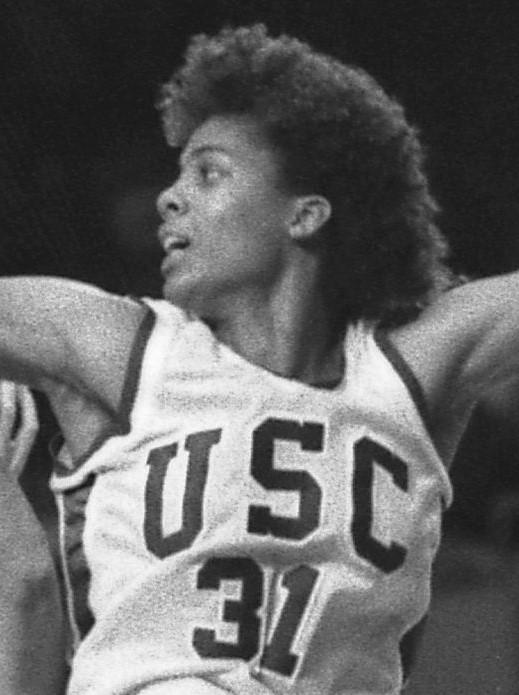
Tamika Catchings
Known for her all-around game, Tamika Catchings was a tenacious defender and a versatile scorer. She played her entire WNBA career with the Indiana Fever and was a key player for the team for many years. A 10-time All-Star and five-time Defensive Player of the Year, Catchings led the Fever to a WNBA championship in 2012 and earned Finals MVP honors. She also represented Team USA, winning four Olympic gold medals. Her leadership, work ethic and relentless style of play made her one of the most respected figures in women’s basketball history.
Sheryl Swoopes
Often compared to Michael Jordan for her impact on women's basketball, Sheryl Swoopes was a dominant player on both ends of the floor. She was an amazing scorer and a lockdown defender, leading the Houston Comets to multiple championships. Here's a mixtape of her career!
Elena Delle Donne
Elena Delle Donne's versatility and scoring ability have made her one of the best small forwards in the WNBA. Her height and unique skill set allow her to play multiple positions and excel in various roles on the court. Standing 6’5”, she combines size with guard-like shooting touch, making her nearly impossible to defend.
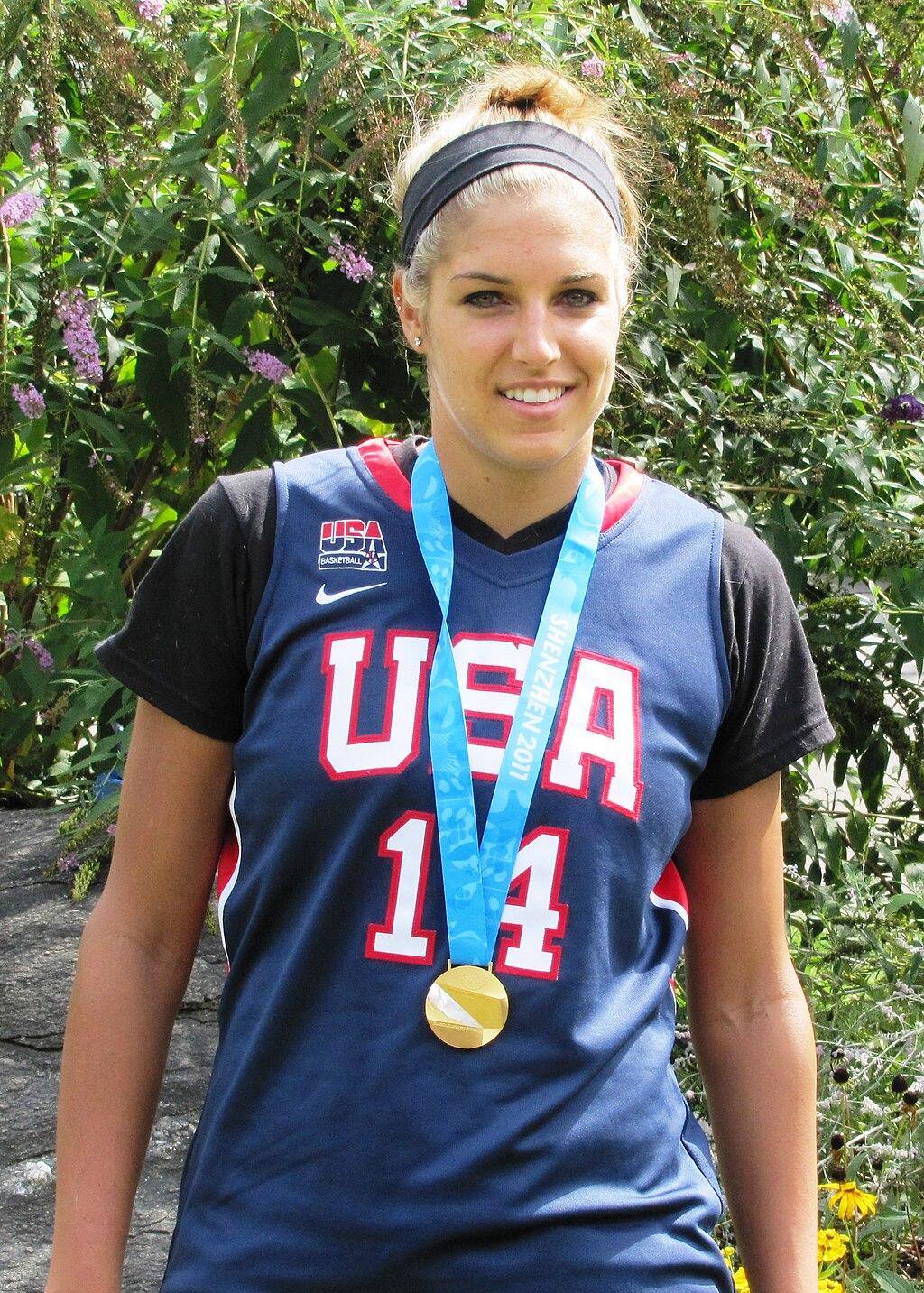
Delle Donne is a two-time WNBA MVP and a multiple-time All-Star who has consistently ranked among the league’s top scorers. In 2019, she led the Washington Mystics to their first WNBA championship, cementing her place as one of the most impactful players of her generation. Beyond her scoring, she is also known for her strong rebounding, passing and defensive instincts, making her a complete all-around player. Off the court, Delle Donne has inspired many through her advocacy for health and disability awareness, particularly in supporting her sister Lizzie, who was born blind and deaf.
The role of the small forward in basketball is one of the most demanding and versatile. Small forwards must be able to score, defend, rebound and facilitate, all while adapting to the needs of their team. The combination of athleticism, skill and basketball IQ required to excel in this position makes it one of the most challenging yet rewarding roles on the court. Want to learn more about power forwards?
The history of basketball is filled with legendary small forwards who have left an influential mark on the game. From LeBron James and Larry Bird to Maya Moore and Cheryl Miller, these players have redefined what it means to be a small forward. Their contributions to the sport continue to inspire and set the standard for future generations of players.
Improve Your Small Forward Skills with Superprof
Private coaching offers personalized attention and adapted instruction, which can significantly enhance a player's development, especially for a position as demanding as the small forward. Superprof, a leading platform for connecting students with tutors, provides an excellent resource for small forwards seeking to elevate their game!
One of the primary advantages of private coaching with Superprof is the ability to receive individualized feedback and customized training plans that address the unique requirements of the small forward role. This one-on-one approach ensures that players can focus on developing the skills most crucial to their position, such as shooting accuracy from various distances, defensive versatility, rebounding efficiency and ball-handling ability.
Additionally, private coaches on Superprof can help small forwards develop a deeper understanding of game strategies and situational awareness, enhancing their basketball IQ. The platform's wide selection of experienced coaches allows players to find a mentor whose teaching style and expertise align perfectly with their goals.
Whether the focus is on improving perimeter shooting, mastering defensive footwork or learning to read the opponent's plays, Superprof coaches can adapt their instruction to meet these specific needs. With flexible scheduling and the option for online or in-person sessions, Superprof makes it convenient for small forwards to incorporate top-tier coaching into their routines, ultimately helping them reach their full potential on the court and become invaluable assets to their teams. Are you ready to get moving?
Read more about the center position here!
Summarize with AI:

